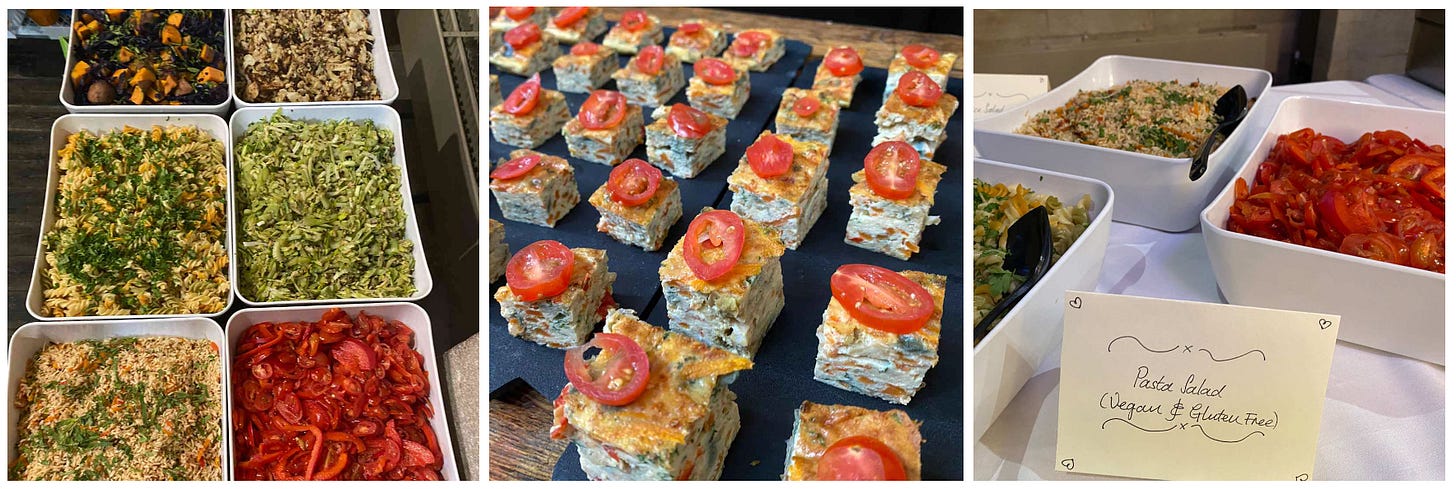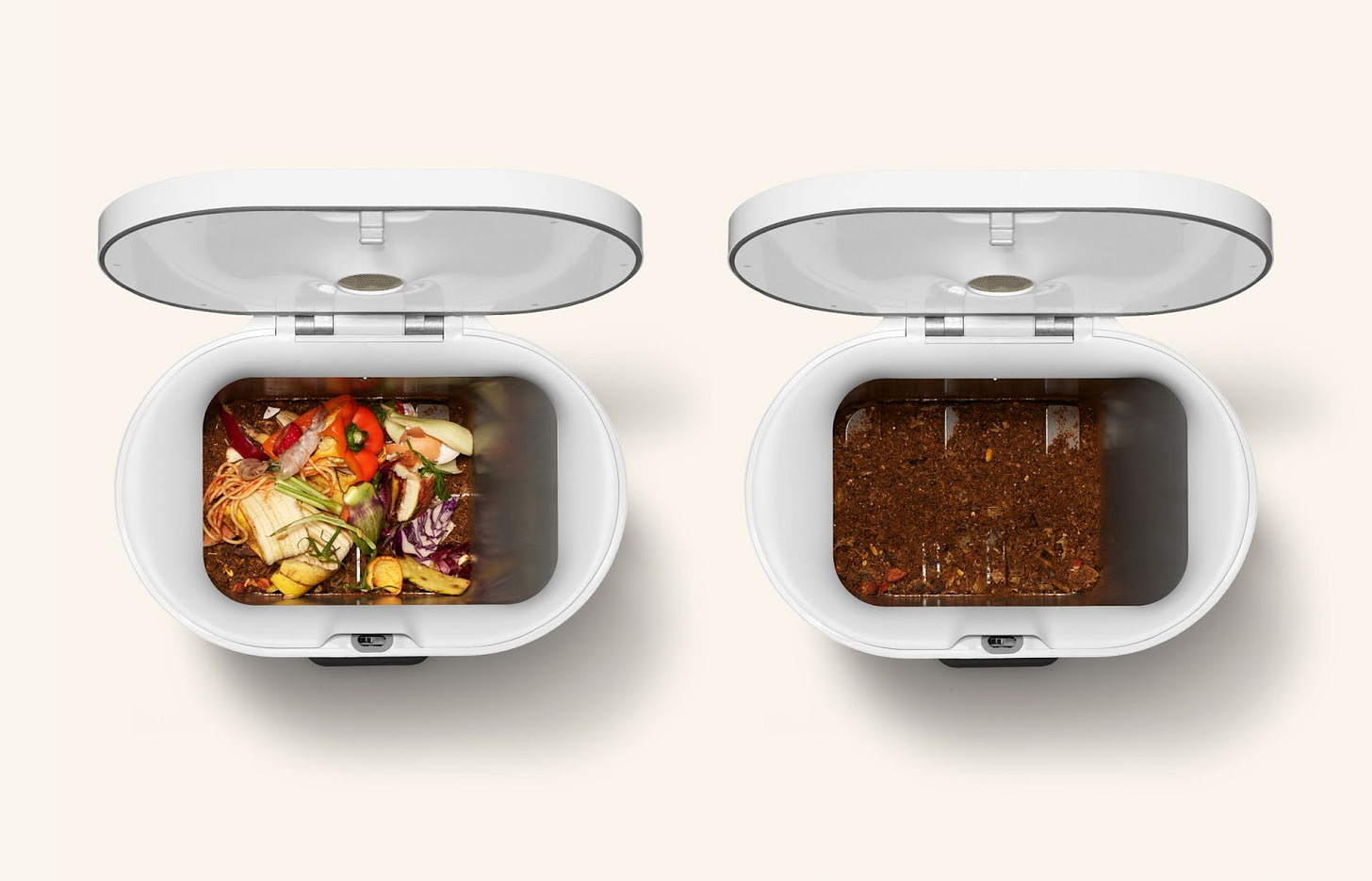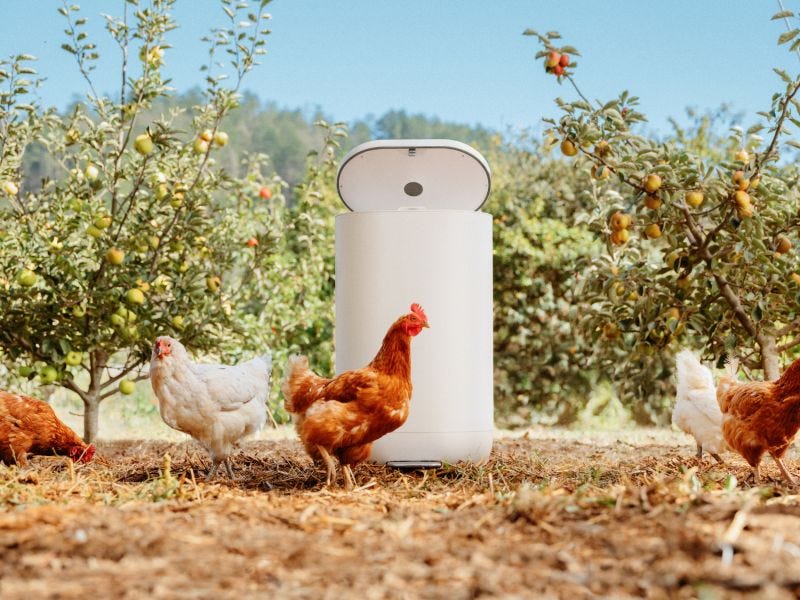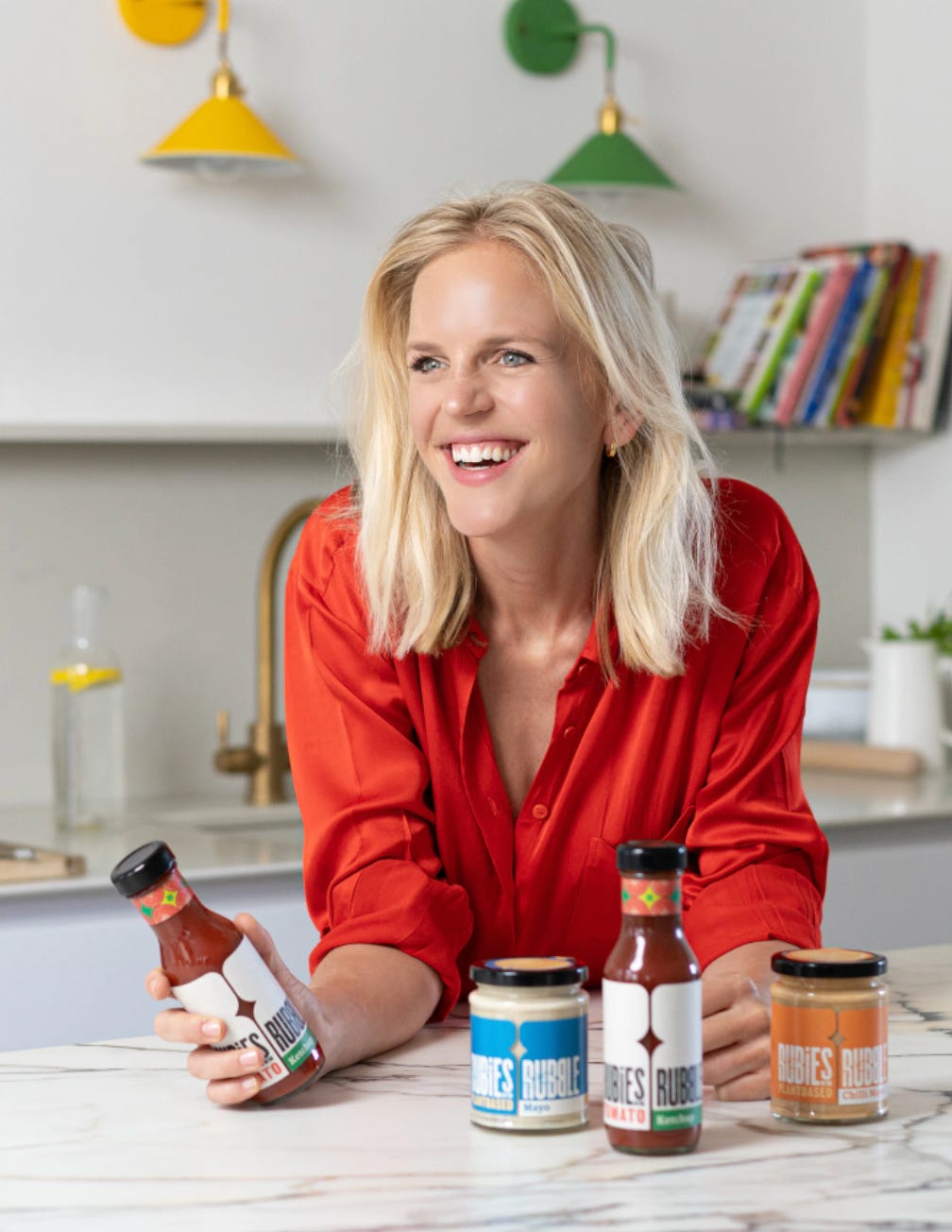🌱 From Surplus to Purpose: How Mill and more are closing the loop on food waste.
Featuring Surplus2Purpose, Rubies in the Rubble, Mill, Toast Ale, Bio & Me and more...
Happy Tuesday!
This week we cover:
Quick Take: Surplus to Purpose: How we can shift to a less stigmatised food waste future.
Brand Spotlight: Mill: Farm to fork, and back again.
In case you missed it: 💥 #6 - Meet the Brands: Rubies in the Rubble are packing a punch in the fight against food waste, featuring Jenny Costa, Founder and CEO.
> Good News Last Week
🎯 Meatless Farm launched four new plant-based products, two of which are the UK’s first plant-based meat filled pasta. Their new products are available across Sainsbury’s and Ocado Retail Ltd.
🎯 Bio & Me announced they are B Corp UK certified, achieving 95.9 points.
⭐️ The Hershey Company partnered with Conseil du Café-Cacao, CARE and Rainforest Alliance to launch their Income Accelerator in Cote D’Ivoire. This program aims to improve household income of cocoa farmers and the adoption of sustainable farming practices through household cash transfers and investment in Village Savings and Loan Associations.
⭐️ PepsiCo opened their Greenhouse Learning Center at their Foods Packaging R&D Center, where they’ll develop their new packaging which aims to be 100% recyclable, compostable and biodegradable by 2025.
⭐️ Carrefour Spain launched a new jam line made from unsold fresh produce in their Madrid hypermarket stores. The line has two products, tomato and orange, both made by Helios.
⭐️ Grupo Boticário announced that they’re adding a water friendly formula (Formula Amiga das Águas) label to their hair and skincare products. The label will indicate that rinse-off products like shampoos, conditioners, soaps and sunscreens have been designed safer to enter water ecosystems.
> Click on each link to read more.
> Before we dig in…
👉 Ready for World Hunger Day?
Over 800 million people go hungry every day, yet a third of all food is wasted. Founded by The Hunger Project UK in 2011, World Hunger Day is a day to unite with millions of people and thousands of organisations around the world to amplify the voices of those facing hunger. On 28th May each year, The Hunger Project calls for people to join together as global citizens to celebrate tangible solutions that will end hunger, lifting up the local communities world-wide that are making this happen.
This year, they’re asking you to get involved. As an individual you could host a Sustainable Supper and raise money for The Hunger Project. As a brand you could donate a % of sales, become a sponsor, choose The Hunger Project as your Non-Profit Partner if you’ve pledged 1% for the Planet, sell products in aid of the day and even host a Sustainable Supper with your employees. Brands like Toast Ale are leading the way, and with less than 3 weeks to go there’s still time for your brand to spread the word and show your support.
Luckily for you, it’s easier than ever - find toolkits, menus, social media banners and more all on their website. You can also follow them on LinkedIn, Twitter, save the date and subscribe to the official WHD newsletter, as well as reach out to the team directly - partnerships@thehungerproject.org.uk .
> Quick Take
Surplus to Purpose: How we can shift to a less stigmatised food waste future.
Food waste is a problem. It’s a climate problem - food waste generates methane gas when it decomposes in landfill (more on this later), contributing exponentially to the warming climate. It's a socioeconomic problem - the WWF suggests that we would have enough calories to feed every undernourished person on the planet if we saved the 1.3 billion tonnes of food waste. It’s a financial problem too - the Food Loss + Waste Protocol estimates losses of upwards of $940 billion globally per year. No matter how you look at it, tackling food waste needs to be addressed.
The UK produces the highest volume of food waste across all the European countries; we throw away 9.5 million tonnes of food waste in a single year – even though 9.3 million adults experienced food insecurity in January 2023 (that’s 17.7% of all households).
This equates to losses of approximately £20 billion from the UK economy. Given that approximately 40% of this comes from businesses, meaning a loss of £8 billion a year, tackling food waste is not only tangible, but good for businesses' P&L, their communities and their wider environment too. Let’s dig into the top actions and incentives that your organisations can take today…
Action 1: Raise the awareness
Like most issues, raising awareness and urgency is fundamental for change. From educating the future generations, to educating our colleagues, we need to start bringing the conversation to the table (pun intended). Many may not think twice about food waste, potentially due to a belief of an endless food supply or lack of knowledge on the production chain.
Companies must start educating teams on the reality of food waste - WRAP, the Waste and Resources Action Programme has an abundance of tools, guidance and stats for businesses to utilise - as well as taking action within the workplace to support companies on the forefront of the fight, such as Surplus to Purpose and TooGoodToGo.
Action 2: Reduce the stigma
The next step is to tackle the associated stigma surrounding the food waste. There remains a belief in society that those who accept free or discounted food are seen as ‘struggling’ or ‘lower’ than others, ignoring the fact that actually, we all need to be utilising food that would otherwise go to waste - nothing to do with social standing, but instead a tangible action to save the planet.
Two companies showcasing this are Olio, who have saved over 100 million portions of food going to waste, and SurplusToPurpose - who offer catering for events using surplus food.

Action 3: Make the changes
Equipped with the knowledge and the resources to make real changes, the next step is to put this in practice. Small changes include implementing a sign-up system for event ordering, having a communal/’help yourself’ shelf, allowing employees to take leftovers home or donating to local charities such as FareShare, the Felix Project and City Harvest.
Action 4: Report it back
Finally, track and share your progress. Inspire others to do the same, and challenge your teams to always be better. WRAP’s guidance for the hospitality sector provides reporting guidance that all businesses can use as a starting point. Remember, reducing food waste is good for the planet, people and profit too. A real win-win(-win).
We have featured lots of pioneering brands, resources and ideas throughout this newsletter. If you have any others, or successes in your own workplaces, let us know!
> Brand Spotlight
Mill: Farm to fork, and back again.
According to WRAP, the UK produced ~9.5 million tonnes of food waste in 2018, 70% of which was intended to be consumed by people (to put that in context, that would create over 15 billion, yes billion, meals). A shocking 70% of this waste came from households. In the US it’s a similar story - over one third of food produced is never eaten, which totals over 39 million tonnes of food waste per year.
One California based startup (now with a 100 person team) is on a mission to tackle this. With many brands focusing on farm to fork, Mill’s mission is to take that food back to the farm again. Working to reduce food waste at the household level, Mill’s approach is simple - to feed farms not landfill, and to reimagine the way people deal with unused or inedible food in a way that preserves its use within the food chain (rather than using nutritious food for purposes like creating energy).
How does it work?
Inside the bin, metal paddles slowly churn the uneaten or inedible food. Charcoal cartridges prevent smells and fruit flies, and the food itself is heated to be turned into ‘Food Grounds’ - a dirt like mixture packed with nutrients, that is essentially food‘minus the water, bulk, odor, and ick’. Nope, Food Grounds aren't compost - which relies on microbes and takes months not hours - and good thing too, otherwise it wouldn’t be very effective as an animal feed ingredient… which is ultimately where they end up. Users package the Food Grounds into prepaid boxes, which will be picked up by the US postal service and shipped back to Mill. From there, Mill turns the Food Grounds into an ingredient in animal feed, to be used by chicken farmers. Once they’ve been fed to chickens, Mill has successfully closed the loop - food from farms, back to the farm again.

Wait, so it’s a membership model?
Yep! Mill Membership is $33/month (on their annual plan), which includes the Mill bin itself, on demand Food Ground pickup via USPS, household impact tracking via a Wifi connected app, charcoal filter replacements and any bin maintenance needed.
As ‘the average household will generate 150-200lbs of Food Grounds per year’, Mill’s membership model ensures that the Food Grounds created by its bin will be managed effectively and the loop will truly be closed. It’s also an interesting incentive for the Mill team to create a product that truly lasts, otherwise the cost of poor design, hard to replace parts or fragile materials will ultimately be felt by them. In an age of new iPhones every year and hard-to-fix smart devices, this is a refreshing step change. Interestingly, Mill’s CEO Matt Rogers was the co-founder of Nest, where he worked with Mill’s current Co-founder and President, Harry Tannenbaum.
What’s the impact?
Food waste leads to food rot, which in turn produces methane - a greenhouse gas with a global warming potential 80 times greater than carbon dioxide (over a 20 year period). In Mill’s first ‘Scoping LCA’, they’ve found that an average household (with multiple users) can avoid half a ton of greenhouse gasses a year. Working with Franklin Associates, Synapse Product Development, Energy Impact Partners and Dr Michael Walsh to conduct this LCA, they’ve also identified future opportunities to lower their footprint - such as energy efficiency gains via software improvements for their bins, and improving logistics of their Food Ground shipping.
An item so in demand you can only sign up to a waitlist, we’re excited for Mill to expand (hopefully internationally) and tackle the food waste crisis one household at a time.
Take a closer look at Mill:
Podcast: MCJ Collective Startup Series: Mill
LCA: Estimating the climate impact of an annual Mill Membership

> In case you missed it
💥 #6 - Meet the Brands: Rubies in the Rubble are packing a punch in the fight against food waste.
Featuring Jenny Costa, Founder and CEO.
> Follow up with…
Article: Our food supply chain needs an overhaul to reflect the real cost of goods
Event: Capturing nature’s value: metrics for biodiversity markets - 16th May
Event: Foodies Fighting Slavery: SME Toolkit Launch - 30th May



